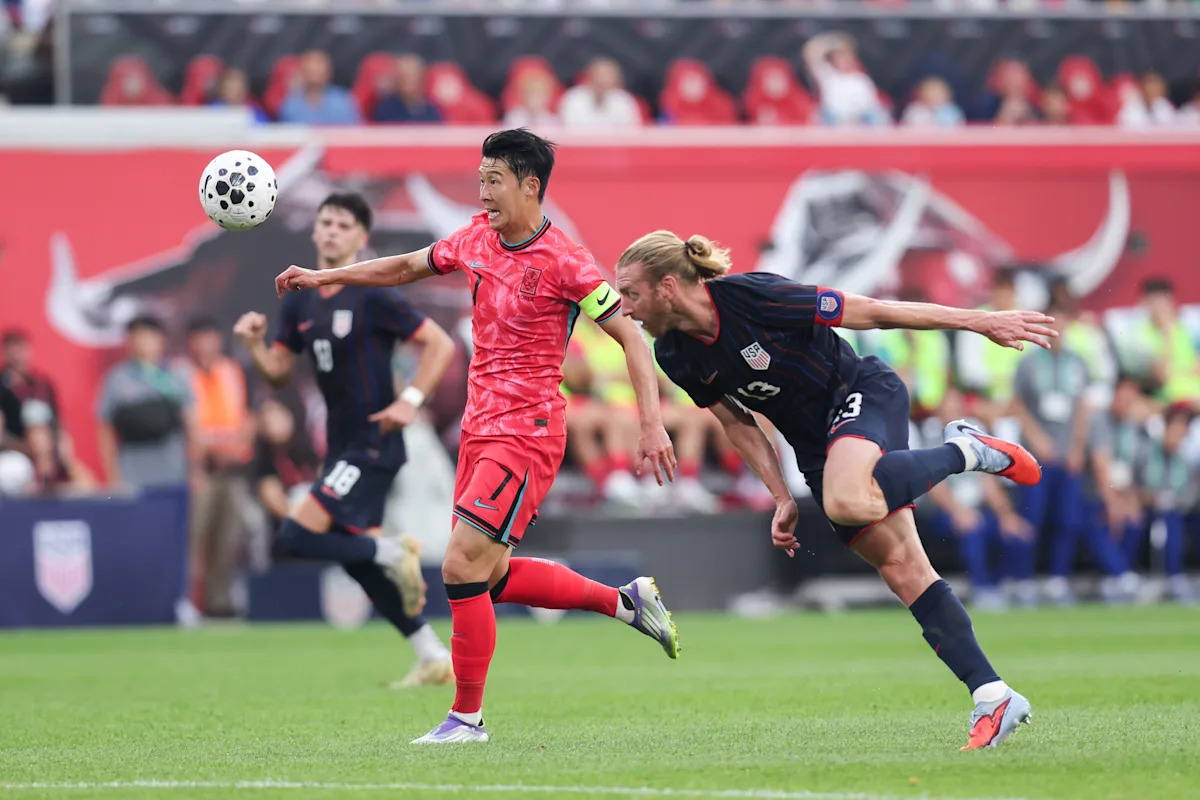The recent match saw the U.S. Men’s National Team (USMNT) face South Korea, resulting in a 2-0 loss that highlighted ongoing challenges for the American squad. With this defeat, USMNT’s struggles against top teams continue to be a pressing issue as they prepare for the 2026 World Cup. Key player Son Heung-min’s brilliant performance was the standout feature of the game, emphasizing both his individual talent and the collective shortcomings of the U.S. team.
In the opening half, the match quickly took a troubling turn for the USMNT. Son Heung-min opened the scoring in the 18th minute, capitalizing on a defensive error that allowed him to find space and unleash a well-placed shot that left goalkeeper Matt Freese with little chance to react. This early setback put immediate pressure on the U.S. side and shifted the momentum toward South Korea.
The challenge only escalated for the USMNT when, just before halftime, Son struck again. After being tripped by Freese in the box, he displayed remarkable vision and composure, assisting Lee Dong-gyeong, who completed a stunning back-heel goal. This display of teamwork and quick thinking exemplified the organized structure of the South Korean side, contrasting sharply with the disarray in U.S. defensive tactics.
Despite enjoying more possession in the second half, the USMNT struggled to capitalize on scoring opportunities. Coach Mauricio Pochettino’s decision to retain the starting line-up after halftime didn’t yield immediate results, leading to a tactical reshuffle that introduced several substitutes. Although these changes infused a sense of urgency and rejuvenation into the squad, the team failed to penetrate the well-organized South Korean defense. Time and again, the U.S. attack was thwarted, and they ultimately finished the match without a goal.
This match against South Korea was particularly significant as the USMNT is just ten months away from the 2026 World Cup. The team had aimed to use these September friendlies as a warm-up phase for more serious preparation. Yet, the loss not only dampened hopes for a revitalized squad but also left fans concerned about the team’s chemistry and cohesion as they head into such a crucial period.
The fan base, eager for signs of progress, was further disappointed to see the team succumb to a fifth consecutive loss against FIFA-ranked teams in the top 25. This lack of success raises questions about the organization’s readiness to compete on the world stage, especially when facing well-structured sides like South Korea.
The stark contrast in performance between the two teams also speaks volumes about current training methodologies and team dynamics. South Korea, having already secured their place in the upcoming World Cup, approached the friendly with a level of intensity and organization that the USMNT could not emulate. For Pochettino, this result has now raised the stakes significantly for the second September friendly against Japan, slated for Tuesday. Will he stick with the same strategy, or will he opt for a fresh approach by integrating those players who showcased immediate impact during their substitutions?
As the pain of this defeat settles in, it’s clear each match remains essential for the USMNT. As they progress through these upcoming fixtures, the urgency and need for improvement will surely grow. The chemistry among players must be developed quickly to foster a squad that can withstand the pressures of international competition.
In conclusion, this match served as a wake-up call for the USMNT. The immediate focus must be on enhancing both individual performance levels and team dynamics. With the World Cup on the horizon, there is little room for error or complacency. The upcoming match against Japan will be an important test of the team’s resilience and ability to adapt under pressure, and fans will hope to see positive changes reflected on the pitch.
Source link









